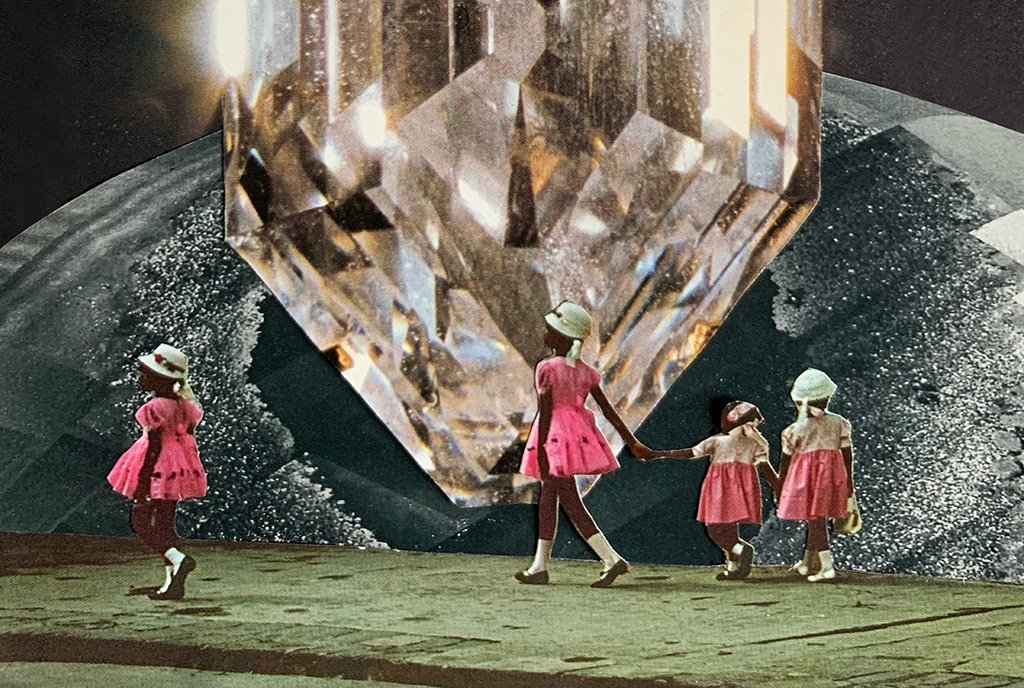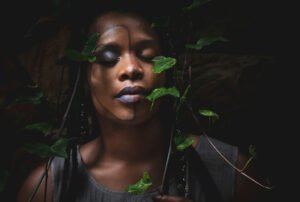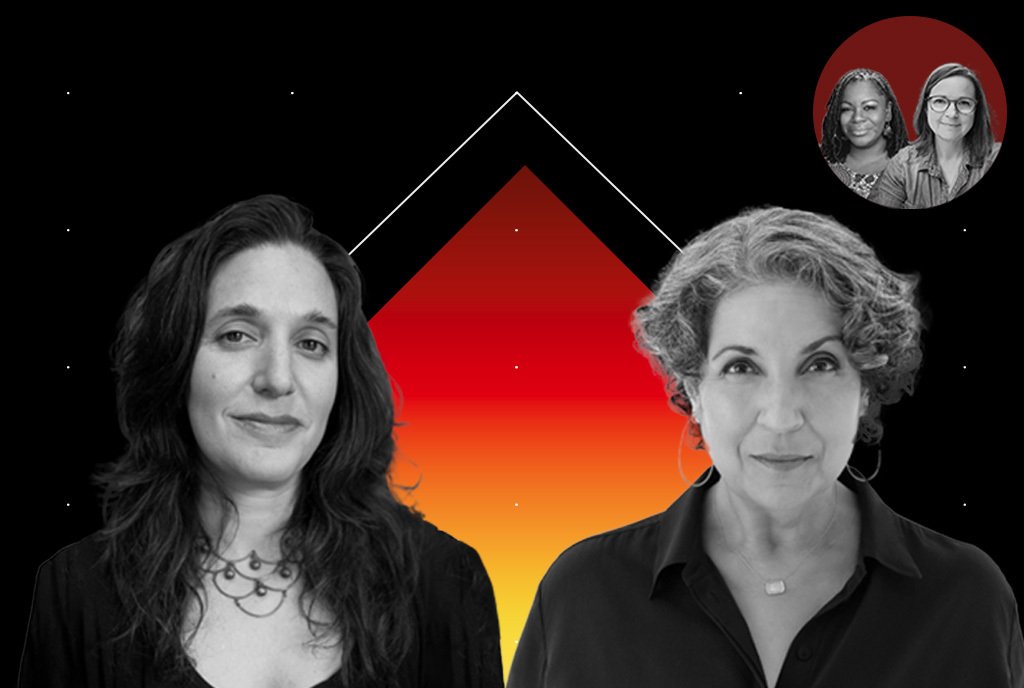
Editors’ note: This piece is from Nonprofit Quarterly Magazine’s fall 2023 issue, “How Do We Create Home in the Future? Reshaping the Way We Live in the Midst of Climate Crisis.”
Hiramocie’s story
“I am tired; I am weary,” sighed Elder Hiramocie as she lay back in her nest of comforting furs. “Still, I must prepare for the children’s kobake”—the ceremonial forging of the link in the chain that would bind them to the Kwakwaka‘wakw Nation, to its people, to its land, to its history.
“But is this right?” she pondered, “these children, who are not of our blood. Yet they have grown up here, uncontaminated. They have played with our children, learned from our adults. Our ways are all they have ever known. They surely now have the right to join the Tribe as adults.”
She thought back to that day when, during Elder Opsawa’s potlatch, fishers had carried in these three delicate babes, offering them to the Tribe, hoping surrogate mothers could be found for them. Those fishers from the Coast Salish Nation refused to explain how they had come across the babies.
Horrified, she had accused the fishers of stealing them, just as the White men had stolen the First Nation’s children—but they assured her that their actions were honorable.
They declared that they had found them farther south and had brought them back here to Nuu-chah-nulth, the island the White settlers had called Vancouver Island, for safety—but refused to say anything more. Maybe they were concerned that they had broken the elders’ command to not allow anyone from the South onto their homeland.
It had been a hot summer that year, the hottest yet. The summer the mainland had disappeared into the haze and smoke drifting from the burning forests. The summer the internet went quiet.
Hiramocie thought of all the changes in recent years. The Chinese whalers had gone, the airplanes had gone, the ferries had gone or lay decaying at the jetties, abandoned for lack of fuel.
Terri’s story
Terri had been forcibly adopted by a White Vancouver family as a child—one of the “stolen children.” She had been both lucky and bright, gaining a good education; but learning of her origins, she had yearned to return to her Tribe. Terri’s doctoral thesis had been on how the First Nations on this island were restoring the fragile strands of their culture from the attempted genocide perpetrated by the White man; of how the wefts of plant lore, of craft, of respect and honour were being rethreaded into the warps of the land, the tides, the seasons, the life patterns of their sister animals and fishes. She had scoured the academic literature and museums, reconnecting, rejoining, restoring those precious threads.
When she returned to the island, she was given an obsolete metal shipping container in which to store her books, papers, and artifacts. But as she relaxed from the stress of study and paid more attention to the news from elsewhere, she realized there was a greater challenge awaiting her: to record the culture and the follies that had brought about the end of Western civilization. She asked the fishers and anyone else daring to head south to bring back more books and artifacts that she could conserve in her archive. Terri thought of this as her version of the Library of Alexandria—a repository of a dying culture that would, hopefully, last many centuries into the future as a resource, as a story, as a warning.
Jane’s story
Jane awoke to that smell again: the sickly smell of decay wafting across the bay, that smell of millions of rotting bodies—unmissed, unlamented, unburied. She gazed out over the wharfs, up the hill, up at the skyscrapers—all deserted now—wondering if it was worth going on, worth continuing this hunt for the books that embraced memories, history, culture. No need to gather technology, that was irrelevant now.
She walked past the metal cells, once locked to retain “the worst of the worst,” now locked to protect the knowledge, the beauty, the culture they had rescued from the dying city. Every day, she and the other librarians had risked their lives rowing across the dangerous waters from Alcatraz Island to San Francisco’s piers, their movements hidden by the bay fogs. Once, it was the danger of these waters that had kept the imprisoned on the island; now it kept refugees, however desperate, from attempting to swim across the bay. Swim, because both the Golden Gate Bridge and Oakland Bridge had been destroyed by the Army Corps of Engineers trying to halt the inexorable northward surge of climate migrants from California, from the Midwest, from Mexico, from everywhere north of Panama.
Desperate families had headed to the city for escape from the heat, the rains, the hunger. Surely, they had thought, the city will take care of us. But no, the city was full, the shops looted, and the water supply had failed. Yet still the northward pressure continued, driven first by hope, then by desperation.
All the way up the peninsula, as far back as San Jose, the ragged bands of weary stragglers moved slowly up the 101, like the traffic jams of the past. Learning what lay ahead, new arrivals relinquished hope. Families gave up—tried to find somewhere safe to end their days in mutual support amid the heat, the smoke, the frequent torrential rains.
Jane prepared for one last, risky expedition from the island—farther inland, to the Eureka Valley library, said to house the last collection of LGBT volumes in America, books not yet cradled in the loving embrace of these prison cells. But first she needed sustenance. Water they had in plenty from the prison well, but she had breakfasted on the last of the fish they had traded with the fishers from Vancouver Island.
The librarians didn’t mind trading their precious volumes for food—they knew the Coast Salish people had a good respect for these histories, these memories, this knowledge, even if much of it was of little use nowadays. They had assured the librarians that a neighbouring nation had an anthropological team that was building an archive of the disaster as a warning to the future.
Jane knew the end was near. Disease or roving bands of scavengers would get them soon. Sympathetic though these fishers from the North were, they had made it clear that while they would give refuge to reference books, they were prohibited from rescuing any people. Their Tribes could not risk cultural contamination from those who had willingly let this disaster unfold—who had failed to stop their leaders when they had the knowledge, when they had the time.
The librarians cast off from the craggy island and started rowing. The impenetrable rocks and walls, which had sheltered them for these last desperate years, melted into the protective fog. As they got halfway across, pulling hard against the turning tide, unexpectedly, the fog began to lift.
Preparing for the kobake
Elder Hiramocie thought again of the three children—no, no longer children, they were approaching puberty and about to become adults and ask for their adult names. Her duty now was to prepare them, to temper the links that would bind them to the nation. She had acted as a grandmother to all three, helping and guiding their foster-parents over the years.
The three had realized that there was something different about them, but all requests—up until now, at least—had been stalled. They had bonded as if siblings, even as they developed their own separate interests and skills.
Askuwheteau—“He who keeps watch”—had attached himself to Terri as she set up the shipping container archive. He had been a thoughtful child, quick to learn to read and fascinated by the knowledge being stored in the metal caves. When he started ordering and cataloguing the material, it suddenly dawned on Terri that his name told her what he should become—he was appointed the nation’s archivist.
Sign up for our free newsletters
Subscribe to NPQ's newsletters to have our top stories delivered directly to your inbox.
By signing up, you agree to our privacy policy and terms of use, and to receive messages from NPQ and our partners.
Hiramocie next thought of Nadie—“Wise.” What an appropriate name that had turned out to be. She was now skilled in the healing arts, with good knowledge of which roots and herbs to use and how to prepare and administer them. She also had great skill as a storyteller, relishing collecting and retelling the stories handed down by the elders. “When I soon meet the ancestors,” thought Hiramocie, “she will be a fine candidate to replace me as the wise woman of the nation, the healer.”
Etchemin—“Canoe man”—was the third. Was it because of his name that he had gravitated to the fishers, joining them on their expeditions down the coast, letting the orca pods guide them to the fish shoals? As ever, they only took the fish they needed, thanking them for the offering. He had discovered coastal maps in Terri’s cave, and had taught himself to navigate by the stars using an old watch and sextant they had found.
Soon, the other fishers had become reliant on him to navigate them up and down the coast.
Askuwheteau had persuaded the fishers to catch a few additional fish to trade with the librarians of the rock for the best books, books chosen by Etchemin, who knew which ones Askuwheteau and Terri would value.
“These are three fine children,” thought Hiramocie. “Each so clever, each with valuable skills that will benefit the nation. I will be honoured to support their transition into adulthood.”
How was it Terri had put it? “With skilled children like these, we of the First Nations can transition into a sustainable future—we can adapt to survive.”
She realized that they now deserved the truth—the truth that even she did not know.
The quest for the truth
The band of three had come to the same conclusion. “We need to know where we are from, who our parents were,” said Nadie. “I really, really need to know if either of you is my birth brother, because, well, you know…”
“We must find out what happened,” declared Etchemin. “Let’s go and find the fishers who brought us here, if they are still alive.” Eventually, they tracked down Troksam, an old fisher who had been on that voyage. She had taken her newborn child with her, so was with milk, and had just been able to sustain the four babies on the return journey, long enough to present them at that potlatch.
“Yes, but how did you find us?” urged Nadie.
Troksam sighed. “Are you sure you are ready for this?” she asked.
“Yes, yes,” they urged.
“Well, we were well south of the Golden Gate, off Carmel beach. You have to know that this is a wide, deep beach, with miles of dunes and scrubland behind it. As we sailed offshore, we saw three couples running to the water’s edge, each holding something up and gesturing to us, beckoning us to come closer.
“We were mindful of the elders’ edict that no one is to be picked up, no one brought back to the island, so we held our place, watching. When it was clear that we were not coming closer, the adults placed the bundles on the sand, as close as possible to the incoming tide, and then turned and ran off into the dunes, not looking back.
“We waited, watching, until they had disappeared. There was no one else on the beach, so we decided that there was enough time to row in to see what the bundles were and row out again, before anyone could run out from cover and try to board us.”
“What we found, carefully swaddled despite the heat, was the three of you.” “But why?” sobbed Askuwheteau. “Why would they have abandoned us?”
“We could only think that they had given up all ambition—had finally accepted that they would soon die. Their only hope for you, for the future, was to beg us to take you,” she replied. “You are the gifted children—gifts from a dying civilization.”
Author’s note: it is with great respect that I have borrowed from the culture of the Indigenous peoples of the Pacific Northwest for this story, whose purpose is to offer readers emotional engagement with the likely effects of ongoing climate change on Western civilization so as to encourage them to help prevent these changes. I wanted to describe just how damaging climate change is and will continue to be. I felt this was best achieved by viewing the changes from the perspective of a sustained culture—a culture strong enough to have survived the changes and who hold the promise of taking forward sustainable values, and offering the seeds of future survival of human society through their preservation of Indigenous knowledge and culture. I selected the peoples of the Pacific Northwest, the Tribes of Vancouver Island, since they have courageously carried their culture forward through surrounding chaotic times, and are ideal observers of the US West Coast of the past, present, and future. I first read of the heroic work being done by the Indigenous peoples of the Pacific Northwest on fish population conservation, while researching Indigenous peoples’ involvement in sustainability and adaptation and their struggles to seek justice as part of my MSc course in sustainability and adaptation. In my research on their culture and values I used only peer-reviewed academic papers in which named Tribal elders or Indigenous academic researchers had been participants. I hope that I am helping to lift up the people’s wisdom and teachings, and I offer honor and respect to the strength, courage, values, and resilience of their culture. I give thanks to the people and hope that I do not offend with this story in any way and have not misrepresented their possible cultural and humanitarian responses to a future regional climate tragedy.












